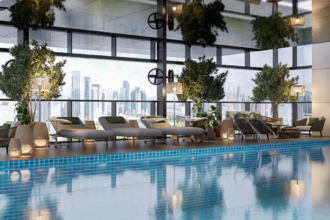Stephanie Ping, CEO and co-founder of WORQ, has shared her valuable insights in this article.
As the Malaysian workforce undergoes a transformation, a new generation steps into the scene, bearing diverse expectations and individualistic approaches for work. This is a generation that embraces flexibility, collaboration, a sense of community, and purpose. This generation is generation Z (Gen Z) that is rapidly making up more than 27% of the global workforce and bringing remarkable changes to traditional work settings.
This new generation brings a new perspective to the workplace, with values and expectations that often differ from traditional norms. Their approach to communication, career development and work culture presents new challenges for employers. To successfully attract and retain this generation, organisations need to understand what drives them and adapt accordingly.
One such solution gaining traction is the adoption of coworking spaces. But are they truly the best way to keep the next generation of Malaysian workers engaged?
Understanding the next-gen of the Malaysian workforce
The rising importance of purpose-driven careers shows an exceptional 98% of Malaysian employees seek meaningful jobs, with 86% of Gen Z valuing a strong sense of purpose. According to a study, 90% of them take into consideration a company’s social and environmental responsibilities when looking for job opportunities. When companies demonstrate a commitment to sustainability, growth, and inclusivity in the workplace, it resonates strongly with Gen Z — who are drawn to environments where they feel valued, accepted, and empowered to thrive.
One key insight that stands out is how much Gen Z values their mental health and wellness. They strongly uphold a working culture that fosters mental well-being in their lives as much as they do in their private lives. A study has found that 38% of Gen Z professionals, when selecting an employer, prioritised work-life balance above all else. Generation Z, in contrast to generations such as the Millennial, has reshaped expectations of working culture, showing there is no subscription to the “live to work” mentality; but instead equal importance is given between personal satisfaction and personal growth.
Attributed to this, organisations that make changes and establish a work environment that encourages flexibility and overall well-being are highly likely to attract and retain top-talent. This approach aligns well with Gen Z’s preference for flexibility, allowing them to pursue side hustles alongside their primary jobs in the traditional economy. To stay competitive in the talent market, employers must reconsider their work structures and evolve accordingly as the future of the workforce changes.
Coworking spaces appeal to young workers
What do Gen Z employees seek the most? Autonomy. While the traditional 9 to 5 is more rigid, top coworking spaces allow flexible membership plans, flexible working hours, and provide various working environments from quiet booths to vibrant common areas. Not all coworking spaces are created equal, especially when it comes to connectivity. In Kuala Lumpur and the Klang Valley, easy access to train lines can mean the difference between a thriving workday and a daily commute struggle. While many coworking options exist, few are truly integrated into the city’s transit network, making train-connected spaces a rare find for businesses and professionals who value convenience, accessibility, and productivity. At WORQ, we have developed a cloud-office network based on Transit-Oriented Development (TOD) principles. Our coworking spaces are strategically located near major train lines, encouraging the use of public transport and making work more accessible.
For many young professionals, the workplace is more than just a desk, it’s a place to connect, collaborate and grow. Coworking spaces, like WORQ, naturally cultivate this sense of community. Daily interactions with peers across industries open doors to new ideas and potential collaborations. Regular networking events, such as the NetWORQ Party and the EQ series, make it easier to meet mentors, investors or even future business partners. This built-in ecosystem of diverse professionals offers a valuable and enriching experience that traditional office settings often lack.
Studies have shown that companies that provide flexible work options experience a 78% increase in retention rates among Gen Z employees. Noticing this growth, it is crucial to provide a tailored environment for employees in this generation that meets their multifaceted expectations. Coworking spaces are flexible work spaces that transform work lifestyle. These spaces are designed to be tech-enabled, ensuring seamless digital connectivity and hybrid work solutions, allowing Gen Z employees to work from anywhere.
Are we ready for the new generation of workers?
The next wave of professionals are from a unique and complex generation. In order to cater to this generation, finding a solution that resonates deeply with their mindset requires understanding their core values, motivations and expectations. Coworking spaces are already the next big thing, with over 300 of them in the country, growing at a rate of 4.64% since 2023. These spaces are a step towards a more human-centric work model, providing flexibility and community that fit in seamlessly with the changing value systems of Gen Z.
As Malaysia continues to develop its digital infrastructure, future-ready talent, and economic diversification, coworking spaces such as WORQ have the potential for a pivotal role in the shaping of an engaged, innovative, and inclusive workforce. Employers, policymakers, and landlords are called to recognise this shift and invest in workplace strategies that empower young talents to thrive.












